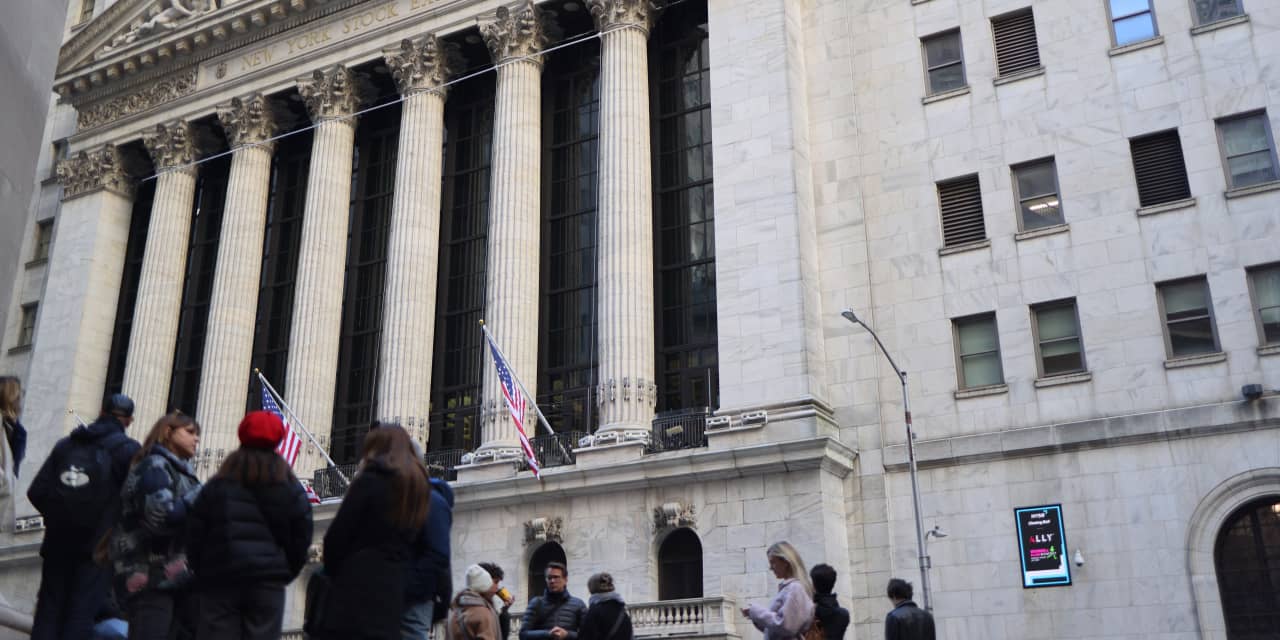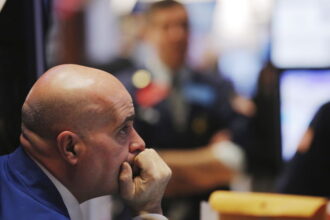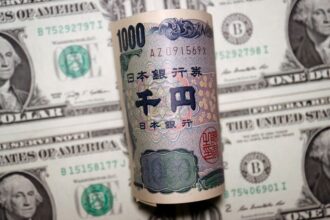U.S. stocks resumed a powerful rally on Monday that helped lifted the S&P 500 out of correction territory ahead of the Thanksgiving holiday.
At only 16 trading days, the S&P 500 index
SPX
has emerged from correction territory at its quickest clip in a decade and notched one of its shortest comebacks in since the 1970s (see chart), according to Dow Jones Market Data.
A correction happens when the price of a stock or equity index closes at least 10% below its prior peak, while an exit is marked by a finish of at least 10% above a correction low. The S&P needed to end at 4,529.11 or higher to exit its latest correction.
“I’ll attribute that to yields moving lower,” said Alex McGrath, chief investment officer at NorthEnd Private Wealth, about the sharp rebound in equities in November, in a phone interview with MarketWatch.
“That’s the prime driver,” McGrath said. “Earnings across the board have been fine, but nothing to shout and scream to the rooftops about.”
What has been keeping investors on their toes has been ructions in longer-duration bond yields. The path of 10- year
BX:TMUBMUSD10Y
and 30- year Treasury yields
BX:TMUBMUSD30Y
have moved dramatically lower from a 16-year high of about 5% in October, which has propelled stocks higher in the past three weeks.
The 10-year yield was at 4.421% on Monday, while the 30-year was at 4.574%, both the lowest levels in roughly two months, according to Dow Jones Market Data.
Higher bond yields imply costlier borrowing conditions for households, corporations and the U.S. government. Investors increasingly have been convinced that signs of a slowing economy and further easing of inflation signal the Federal Reserve may be done raising interest rates in this cycle, and likely to cut rates next year.
Richmond Federal Reserve Bank President Tom Barkin on Monday said further easing of inflation could be thwarted by plans by some businesses to keep hiking prices, which may prompt the central bank to keep rates relatively high for a long time.
“But a lot of good news is already priced in and investors may be reluctant to chase the rally, with the S&P 500 up nearly 10% in three weeks, leaving it less than 2% from its summer high,” said Jason Draho, head of asset allocation, chief investment office Americas, of UBS Global Wealth Management, in a Monday note to clients.
Related: The stock market has rallied 63 times after a correction. Why this time is different, says Deutsche Bank.
McGrath at NorthEnd Private Wealth said sharply higher equity prices risk triggering tougher talk from Fed officials on interest rates, which could rattle markets.
“I don’t think that stocks necessarily are in danger of falling into a bear market,” he said, adding that he sees challenges in terms of the ability of consumers to keep spending when credit has gotten so costly. “Where is the spending going to keep coming from?”
Read the full article here










